October 3, 4 & 5, 2025
Atlanta Symphony Hall, Woodruff Arts Center
Atlanta, Georgia – USA
Atlanta Symphony Orchestra; Natalie Stutzmann, conductor; Alisa Weilerstein, cello.
Aaron COPLAND: Fanfare for the Common Man (1942)
Edward ELGAR: Concerto for Violoncello and Orchestra in E minor, Op. 85
Richard STRAUSS: Ein Heldenleben, Op. 40
Mark Gresham | 7 OCT 2025
The Atlanta Symphony Orchestra, under the baton of music director Nathalie Stutzmann, officially launched its 2025-26 season on Friday evening with a triptych of 20th-century works that reflected distinct national voices: American, English, and German.
In the traditional ASO manner, the season opener launched with the audience rising to sing “The Star-Spangled Banner” led by the orchestra. The National Anthem started with enthusiasm, but at “And the rockets’ red glare…” Stutzmann suddenly dropped the dynamic level considerably, which seemed to throw off some of the audience, as if something had gone wrong. That’s an interpretive whim that would have worked with an orchestra alone, but when you are leading an assembled vox populi of well over 1,500 people in singing, it is not a pragmatic choice, and it deflates the experience.
It would have also been better if, rather than a long, distinct break, the orchestra had just taken a breath or two, then segued directly into the formal opener, Aaron Copland’s Fanfare for the Common Man. Allowing just enough time for the applause to die down and the audience to take their seats could have been highly effective, bridging the two works without losing any emotional momentum and enhancing the connectivity between them without overstating the patriotic spirit of either. Absent that, Copland’s iconic Fanfare still set an appropriately ceremonial tone.
Cellist Alisa Weilerstein then joined Stutzmann and the ASO for Elgar’s Cello Concerto in E minor, a work long associated with introspection and emotional restraint. Weilerstein, who has made the concerto a signature piece in her repertoire, tends to lean more into the emotional elements, with a “hyper-Romantic” edge, emphasizing Elgar’s anguish at the expense of an underlying English stoicism and a subtle shading that can lend Elgar’s melancholy its power — if the orchestra does not overwhelm the cello part.
Weilerstein does not generate a lot of sound, say like Johannes Moser or even Yo-Yo Ma; in that respect, she is more like the violinist Midori: excellent musicianship, but not the largest sound on the circuit. There were times during much of this particular performance when a more careful balance between the soloist and orchestra was needed.
If you missed these ASO concerts or want to hear Alisa Weilerstein in a more intimate environment, have no fear: she’ll return to Atlanta next month to perform in a Sunday afternoon recital with pianist Inon Barnatan at the acoustically pristine Spivey Hall on November 16.
After intermission, Stutzmann led a somewhat rough and unsettled Ein Heldenleben, Richard Strauss’ semi-autobiographical tone poem.
Stutzmann usually is more within her wheelhouse when conducting the big, blustery romantic pieces—tone poems and opera overtures, versus the more structurally formal symphonic repertoire. But in this particular instance, Friday night’s Heldenleben was a bit on the rough side, with unevenness in both execution and interpretation.
However, concertmaster David Coucheron’s supple violin solos, representing Strauss’ wife Pauline, did lend the work one of its highlights — both lyrical and convincing.
That said, unsolicited word comes secondhand about how much better Saturday’s concert was than the night before, from someone who heard both, suggesting that Stutzmann did a more credible job of leading Ein Heldenleben on Saturday, and was also careful not to overwhelm Weilerstein in the Elgar. However, we can only review what we hear firsthand, of course.
This concert was the first installment in Stutzmann’s fourth season as ASO music director. She has a small cadre of fans who believe Stutzmann can do no wrong, while some others hold the opposite view. The truth lies somewhere in the middle, but while initially greeting the advent of her tenure with optimism and an open mind, I have become increasingly disappointed with Stutzmann’s time here as music director and conductor.
And lest the professional social “disruptors” begin to screech: That has nothing to do with Stutzmann being a female conductor. There exists a conspicuous number of women conductors who demonstrably merit their accolades (an excellent example is Gemma New, who conducted the ASO in a special one-night-only concert two weeks earlier). And it is worth noting that even after several years in the post, Stutzmann still does not actually reside in Atlanta. That in itself continues to raise questions. ■
EXTERNAL LINKS:
- Atlanta Symphony Orchestra: aso.org
- Alisa Weilerstein: alisaweilerstein.com

Read more by Mark Gresham.
RECENT POSTS
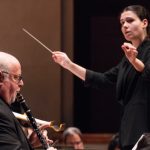 Dallas Symphony’s assistant conductor rises to the challenge in a program of premieres and familiar works • 25 Nov 2025
Dallas Symphony’s assistant conductor rises to the challenge in a program of premieres and familiar works • 25 Nov 2025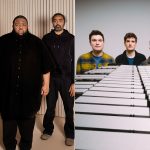 Tyshawn Sorey Trio and Sandbox Percussion merge forces in Durham for an immersive night honoring jazz drummer Max Roach • 24 Nov 2025
Tyshawn Sorey Trio and Sandbox Percussion merge forces in Durham for an immersive night honoring jazz drummer Max Roach • 24 Nov 2025
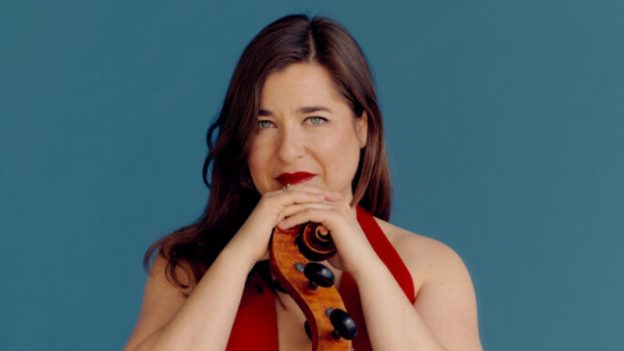

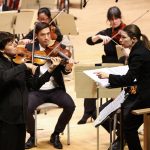
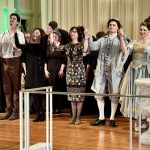
.png)